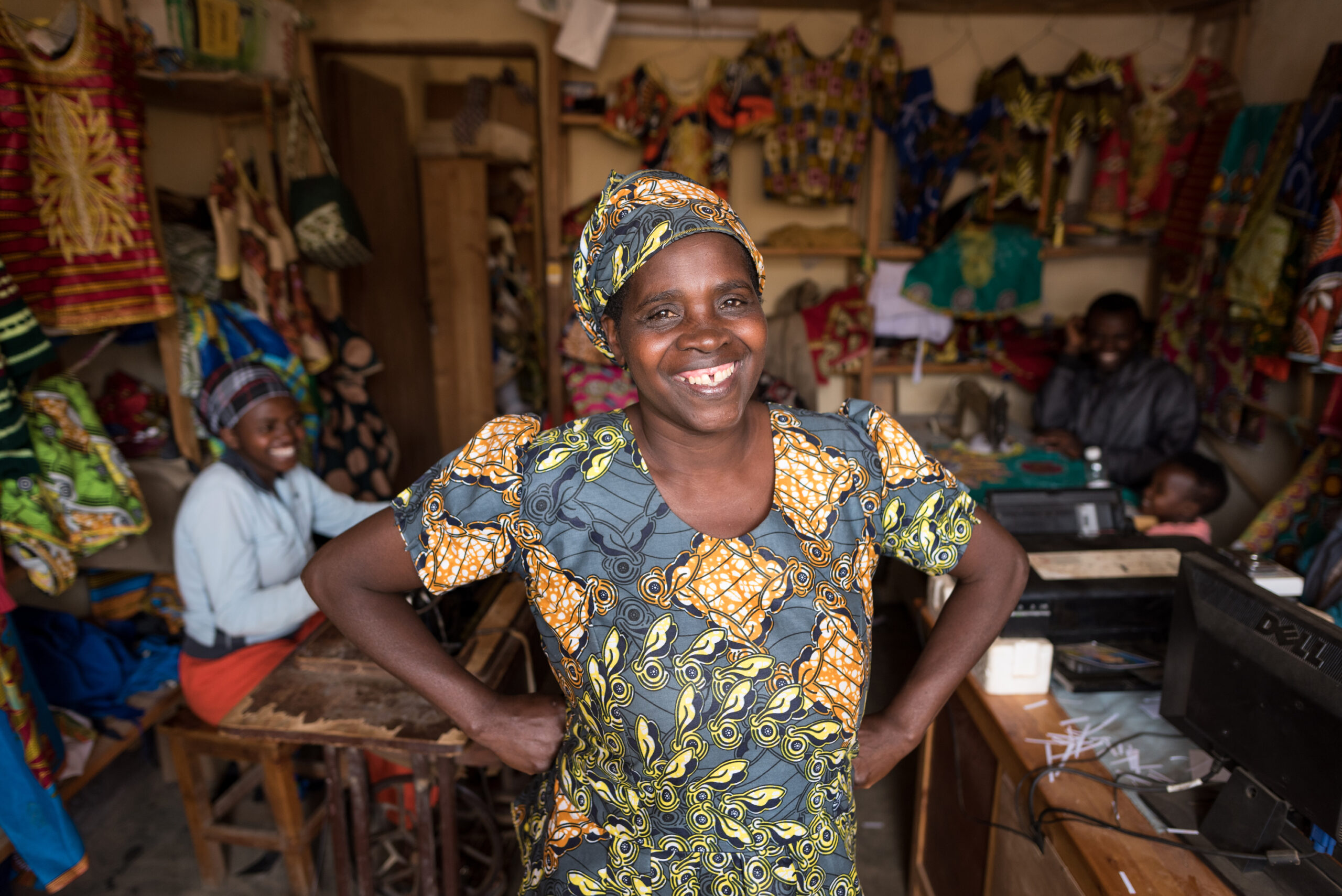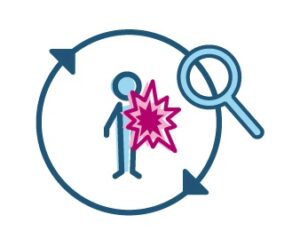 Humanitarians know how essential a robust protection analysis is to achieving protection outcomes. Continuous, context-specific analysis is a foundational element of Results-Based Protection. There are several different ways to approach this. What does it look like when an organization prioritizes analysis by investing in dedicated analysts at the country level?
Humanitarians know how essential a robust protection analysis is to achieving protection outcomes. Continuous, context-specific analysis is a foundational element of Results-Based Protection. There are several different ways to approach this. What does it look like when an organization prioritizes analysis by investing in dedicated analysts at the country level?
Mercy Corps has seven analysis teams with more than 40 analysts supporting their humanitarian operations. In Nigeria two full-time positions were created that are dedicated to context analysis to support their humanitarian operations. While not focused specifically on continuous, context-specific protection analysis, there are many things to be gleaned from their experience that resonate with RBP.
 This case example outlines how Mercy Corps Nigeria approaches context analysis more broadly and how insights have been (and could be) used for understanding and responding to protection risks.
This case example outlines how Mercy Corps Nigeria approaches context analysis more broadly and how insights have been (and could be) used for understanding and responding to protection risks.
What is a “Humanitarian Analyst” for Mercy Corps, and how can insights be used to inform continuous, context-specific protection analysis?
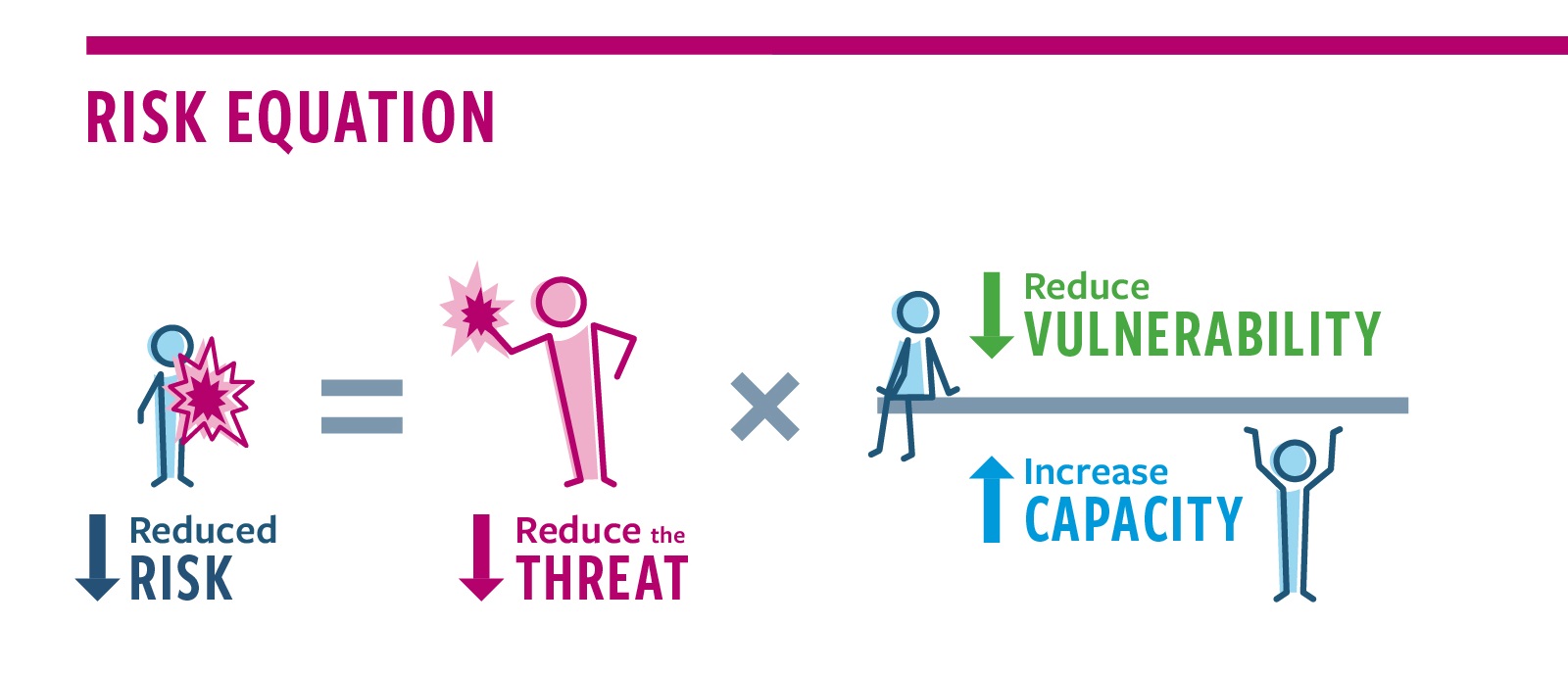
For Mercy Corps, the “Humanitarian Analyst” position is tasked with providing the team in-country and the wider humanitarian community with relevant, concise, and timely insights related to the factors that are driving the crisis in northeast Nigeria. This information is then used to inform programming and help decision-makers mitigate risk, look ahead and position strategically in the complex, fluid, and fast-moving environment. While not focused specifically on protection analysis, this sort of context analysis can feed into and complement the teams’ understanding of protection risk patterns. In addition, their approach illustrates one way to invest in ongoing analysis to inform decision-making.
Broadly, the position entails analyzing the political, social, economic, and cultural dynamics in the region as they relate to the ongoing crisis.Starting in 2020, this has included the COVID-19 pandemic and how it is affecting the region; key protection risks, including ongoing IDP returns (facilitated by the Borno State Government); and various other conflict dynamics that affect the humanitarian space. There is also an effort to develop forward-looking analysis, scenarios, and forecasts wherever possible.
Mercy Corps employs a flexible methodology for analysis that can be adapted as needed. Aspects of conflict analysis, for example, is one method that can be used for a deeper understanding of the dynamics among parties to the conflict. Affected communities themselves are central to the analyst’s work—their perspective is critical to ensure Mercy Corps’ programming is relevant and effective. As much as possible, the analyst highlights these perspectives in the analysis work and actively seeks to feed this perspective in decision-making processes. There is a particular focus on disaggregating responses by gender so their team can identify where there are gender-specific patterns.
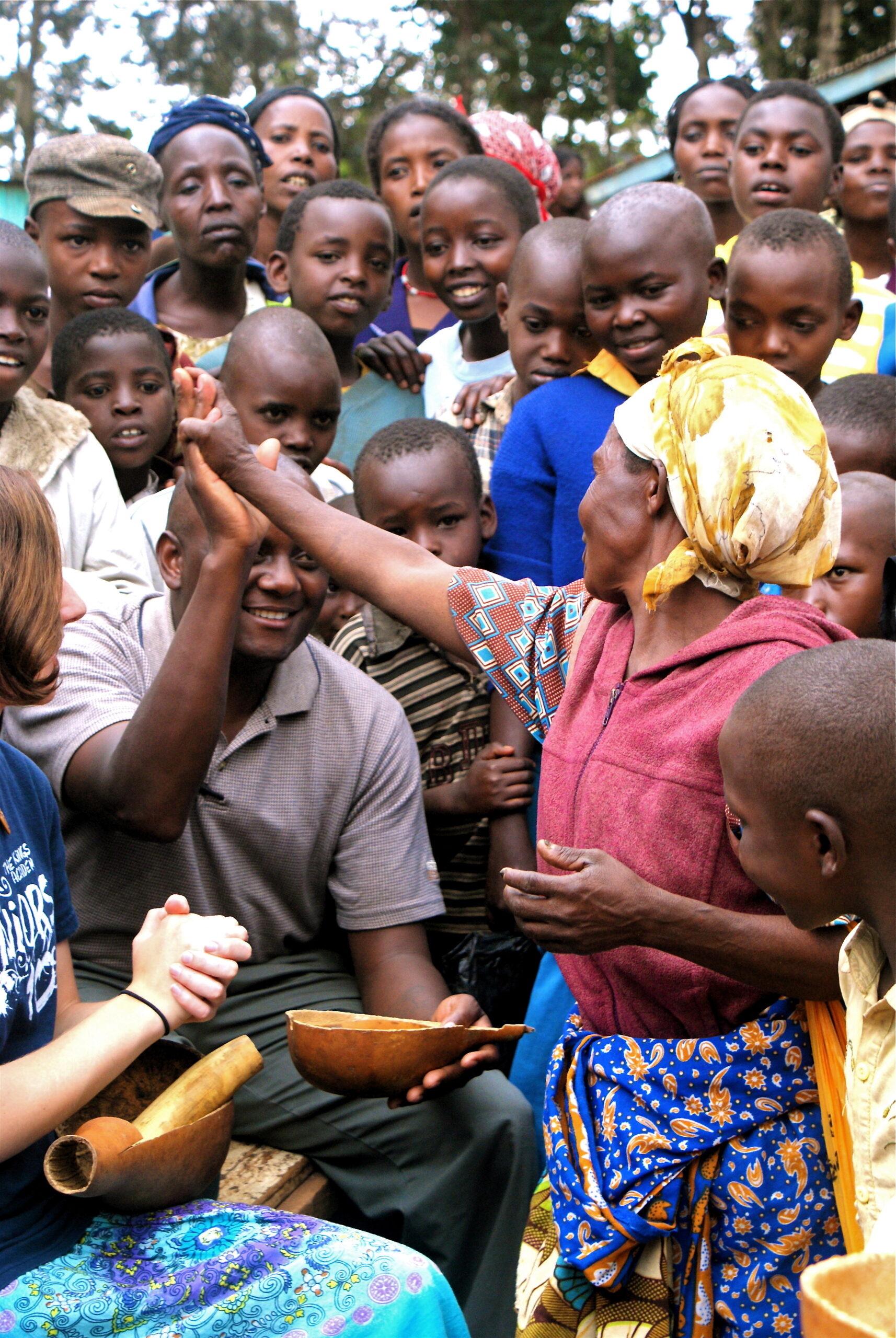
In addition to the affected population, the analyst draws information from a range of subject matter experts, particularly local civil society, open data sources, surveys, and media and social media. For the moment, data collected via program teams is not integrated into the analysis, but this is being formalized as the Nigeria analysis team grows in size.
Investment in analysis is part of Mercy Corps’ strategic plan in Nigeria and globally. Staff use the analysis to inform advocacy work and to leverage their influence. The analysis is shared internally at a few different levels. At the field level, the analysis is shared with field managers in the garrison towns who oversee day-to-day operations and programs, with program managers and operational leads in Maiduguri with the national security team, and with members of the Senior Management Team. It is also shared with individuals at the regional and H.Q. level who are engaged in the humanitarian response, safety and security, research, and advocacy work in Nigeria. As with protection-specific analysis, it is important to be mindful of who has access to the analysis as certain sensitive information may lead to risks for staff and the organization. It is also important to target key staff with decision-making responsibilities rather than sharing information with all staff.
Thus far, the analysis has been used more to address protection issues through advocacy rather than programming.[/simple_tooltip]The Mercy Corps team is exploring how to bring analysis and protection strategies together more concretely in the future in a more comprehensive approach to achieving protection outcomes. In 2018 and again in 2020, the analysis team produced analysis specifically on the issue of forced IDP returns facilitated by the Nigerian Government—a key protection issue at the time. This included highlighting projected risks for IDPs facing forcible return in relation to specific policy frameworks. It also included community perspectives on the issue and why these dynamics were taking place. This analysis helped shape Mercy Corps’ advocacy messages on forced IDP returns to change the policy and practice of the Nigerian Government to reconsider their position to forcibly return people to dangerous areas.
Advocacy successes thus far are attributed to close working relationships between the analysis team and senior management. When issues are raised in key coordination forums such as the Humanitarian Country Team, donor government, or Nigerian Government engagements, the analyst can work on specific analysis relevant for these topics, so senior management has the information they need to advocate in these settings. The connection with H.Q. advocacy teams has also been strong; they often draw on analysis produced by the analyst to prepare key messages and other materials for global level advocacy efforts.
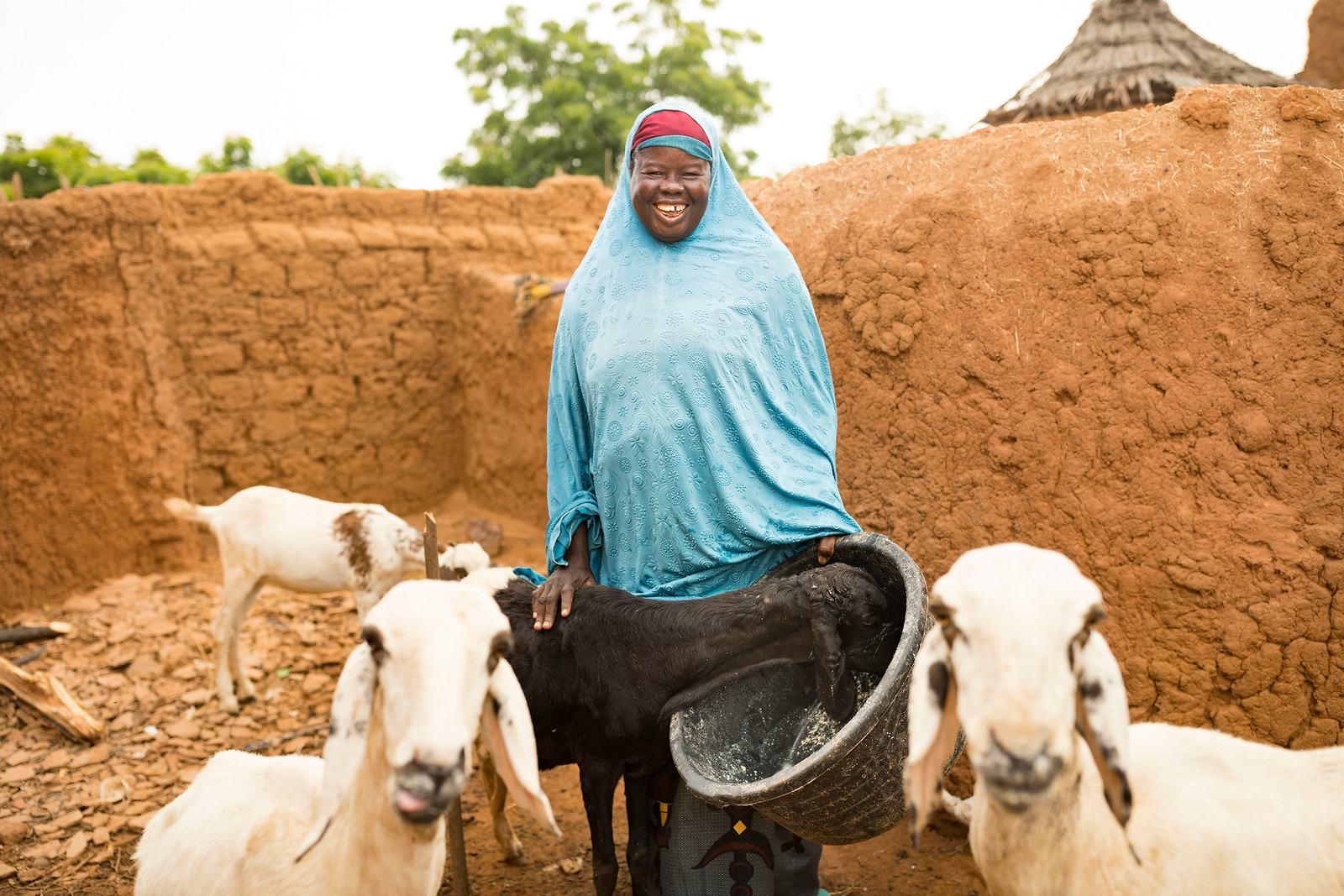
What are the benefits of having a staff member or team dedicated to analysis, and what sort of challenges do they encounter?
Mercy Corps has observed several advantages to having a staff member analyzing the broader context and its applicability to humanitarian activities.For example, in 2019 there was an extended, strained period of relations between the Government and major INGOs in the northeast. During this time, the analyst focused on analyzing the underlying dynamics impacting the situation and the narratives circulating among affected communities regarding the narratives around INGOs and the government at this time. This analysis provided on-the-ground perspectives of the impacts on communities, particularly perspectives from some of the estimated 100,000 people affected by food insecurity as a result of the tensions and reduced operating space of INGOs, with key stakeholders including the donor community whom Mercy Corps liaised closely with during the situation.
Another benefit of having a dedicated analyst is their role in linking up very knowledgeable staff within Mercy Corps’ Nigeria team who have a wealth of information on the context, including front line field staff, with staff in other locations to identify trends and patterns.By working closely with field staff, management teams in Maiduguri, and senior management in Abuja, a layered understanding of situations starts to emerge, shared with various decision-making levels.
Regarding challenges, analysis is relevant to program design and adaptations, advocacy, communications, donor engagements, access negotiation, and crisis management, and it is easy to be pulled in multiple directions. It can be challenging to make time to conduct the analysis while also working with the wider team to apply analysis to the breadth of Mercy Corps Nigeria’s work.
In addition, as protection issues grow more acute, sensitivities about the issues increase, and it can sometimes be difficult for people to speak openly about the protection threats communities face. Having a good operational presence and good relationships can help when sensitivities are high.
INTERACTION HAS OBSERVED THAT THE CRITICAL SKILLSETS for a protection-focused analyst overlap with the skills above, but also include:
• Language, familiarity with local traditions, practices, and culture in order to build relationships, establish trust, and engage appropriately.
• Know-how to undertake conflict analysis, stakeholder analysis, risk mapping, spheres of influence, and methods such as foresight analysis, contribution analysis, and scenario planning.
• Experience with engaging in sensitive discussions appropriately, while being aware of issues of confidentiality, informed consent, how to refer when issues arise, and how to speak to children/ adolescents.
• Historical, social, and anthropological lenses.
• Communication skills.
• Creativity (thinking out of the box).
• How to analyze large amounts of data from different sources and understand connections/links.
• Interpersonal skills.
• The use of complexity theory and methods to understand dynamic and complex issues.
• Ability to ask the right questions.
• Ability to link analysis to decision-making (not just analysis for the sake of analysis).
What specific skill sets make a good context analyst?
Humanitarian action has a tendency to operate within a ‘bubble,’ especially among the international staff who often end up in decision-making roles. It is critical that those working on context analysis, including on protection, work outside of this bubble as much as possible to ensure they hear different perspectives on contextual dynamics and their historical trajectory to piece together an understanding that offers an accurate analysis to colleagues. This requires a specific skill set and dedicated resources, including staff salaries and time. The skillset for an analyst is specific and can be complementary to more program-focused staff members. Some of the skills Mercy Corps values in an analyst include:
- Data Gathering: the ability to collect multiple primary and secondary sources of data, including from more unorthodox sources, then produce relevant and timely information products
- Understanding the nature of multi-layered conflict and being able to look at conflict as it plays out politically and in communities.
- Critical thinking: the ability to critically engage with lots of information and to objectively analyze and evaluate it.
- Triangulate and ratify information — The ability to access and leverage open- source data. In northeast Nigeria, there are multiple conspiracy theories and narratives, so the analysis produced must be backed up by evidence and verified.
- Getting out and meeting people, especially local stakeholders who often have important insights into the humanitarian situation. The ability to build relationships and trust over time is key.
RBP QUESTIONS TO CONSIDER
-How could an analyst incorporate the protection risk analysis into its analytical efforts?
-How could a dedicated analyst better support program teams seeking to monitor protection risks experienced by crises affected populations?
-What additional outcome- oriented methods could strengthen analysis for protection outcomes?
-A general analyst can identify trends across multiple sectors and disciplines. How could this multi-disciplinary approach strengthen strategies for protection outcomes?
-In a context like northeast Nigeria, where the list of protection concerns is never- ending, how could having a shared understanding of prioritized protection risk patterns help give direction for protection analysis?
This case example is based on a questionnaire filled in by Kerri Leeper, former Mercy Corps Humanitarian Analyst in Maiduguri, Nigeria, in December 2020.
CLICK HERE TO EXPLORE OTHER CASE EXAMPLES OF RBP IN ACTION
READ MORESign-up
"*" indicates required fields
